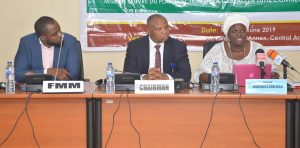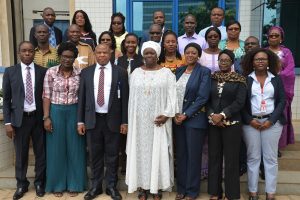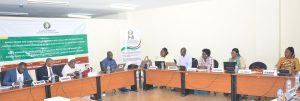ECOWAS reviews strategy to curb trafficking in persons in the region

The Commission of the Economic Community of West African States (ECOWAS) commenced its 3-day Annual Review meeting of Member States’ implementation of the ECOWAS plan of action on Trafficking in Persons (TIPs) on 10th June 2019 in Abuja, Nigeria.
The meeting which comprises of delegates from ECOWAS Member States and partners such as the Free Movement and Migration in West Africa (FMM), International Organization for Migration (IOM), International Labour Organization (ILO), United Nations Office on Drugs and Crime (UNODC) and the International Centre for Migration Policy Development (ICMPD), will contribute to strengthening the network of TIPs National Focal Points and strengthening the coordination between Member States in cases of cross border human trafficking.
Addressing the participants at the opening session of the meeting, Mrs. Raheemat Momodu, the Head of the Human Security and Civil Society division of the Humanitarian and Social Affairs Directorate of the ECOWAS Commission stated that, human security, especially the protection of people vulnerable to exploitation such as women and children is very important.

Mrs. Momodu highlighted that the new ECOWAS plan of action recognizes and addresses the migration linkages with human trafficking and forced labour as well as emerging issues in combating human trafficking.
The representative of Nigerian’s National Agency for the Prohibition of Trafficking in Persons (NAPTIP) and the Chairman of the meeting, Abdulrahim Shaibu urged the delegates to utilize the ECOWAS plan of action which he described as “a formidable and a fundamental instrument which will address problems Member States are encountering in curbing the heinous crime of human trafficking”.

The Annual Review meeting will focus on reviewing the implementation of National Action Plans and priorities identified by Member States in 2018. It will also serve to initiate measures for the development of a database of experts on counter trafficking to support capacity building in the region and provide training for National Focal Points on combatting human trafficking in irregular migration flows and international displacement.



